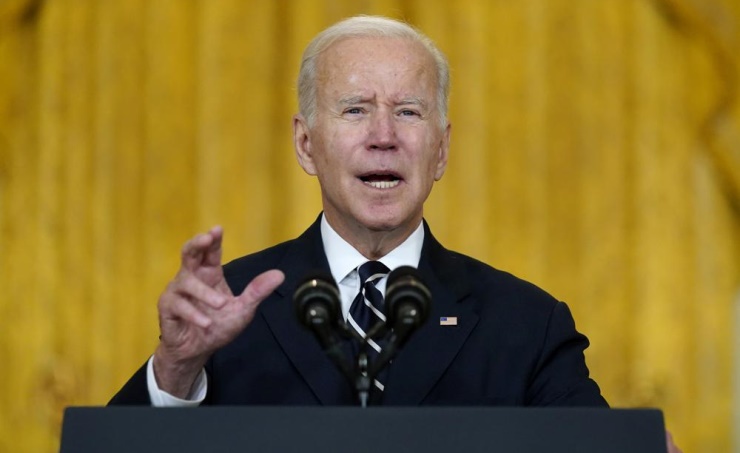Washington : President Joe Biden announced Thursday that he and Democrats in Congress have reached a “historic” framework for his sweeping domestic policy package. But he still needs to lock down votes from key colleagues for what’s now a dramatically scaled-back bill.
Eager to have a deal in hand before his departure late in the day for global summits, Biden made his case privately on Capitol Hill to House Democrats and publicly in a speech at the White House.
He’s now pressing for a still-robust package — $1.75 trillion of social services and climate change programs — that the White House believes can pass the 50-50 Senate.
The fast-moving developments put Democrats closer to a hard-fought deal, but battles remain as they press to finish the final draft in the days and weeks ahead.
“Let’s get this done,” Biden exhorted.
“It will fundamentally change the lives of millions of people for the better,” he said about the package, which he badly wanted before the summits to show the world American democracy still works.
Together with a nearly $1 trillion bipartisan infrastructure bill, Biden claimed the infusion of federal investments would be a domestic achievement modeled on those of Franklin Roosevelt and Lyndon Johnson.
But final votes will not be called for some time. The revised package has lost some top priorities, frustrating many lawmakers as the president’s ambitions make way for the political realities of the narrowly divided Congress.
Still in the mix, a long list of other priorities: free prekindergarten for all youngsters, expanded health care programs — including the launch of a new $35 billion hearing aid benefit for people with Medicare — and $555 billion to tackle climate change.
There’s also a one-year extension of a child care tax credit that was put in place during the COVID-19 rescue and new child care subsidies. An additional $100 billion to bolster the immigration and border processing system could boost the overall package to $1.85 trillion if it clears Senate rules.
Taking form after months of negotiations, Biden’s emerging bill would still be among the most sweeping of its kind in a generation, modeled on New Deal and Great Society programs. The White House calls it the largest-ever investment in climate change and the biggest improvement to the nation’s healthcare system in more than a decade.
Biden’s proposal would be paid for by imposing a new 5% surtax on income over $10 million a year, and instituting a new 15% corporate minimum tax, keeping with his plans to have no new taxes on those earning less than $400,000 a year, officials said. A special “billionaires tax” was not included.
Revenue to help pay for the package would also come from rolling back some of the Trump administration’s 2017 tax cuts, along with stepped-up enforcement of tax-dodgers by the IRS. Biden has vowed to cover the entire cost of the plan, ensuring it does not pile onto the debt load.
With the framework being converted to a 1,600-page legislative text for review, lawmakers and aides cautioned it had not yet been agreed to.
But no votes were scheduled. Progressives have been withholding their support for the roads-and-bridges bill as leverage until they have a commitment that Manchin, Sinema and the other senators are ready to vote on Biden’s bigger package.
Instead, Congress approved an extension to Dec. 3 of Sunday’s deadline for routine transportation funds that were at risk of expiring without the infrastructure bill.
Other expanded health care programs build on the Affordable Care Act by funding subsidies to help people buy insurance policies and coverage in states that declined the Obamacare program.
Overall, the new package also sets up political battles in future years. The enhanced child care tax credit expires alongside next year’s midterm elections, while much of the health care funding will expire in 2025, ensuring a campaign issue ahead of the next presidential election.


